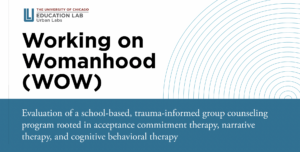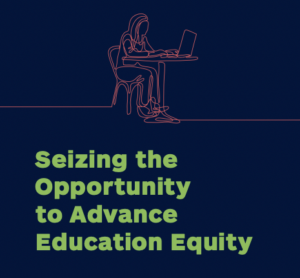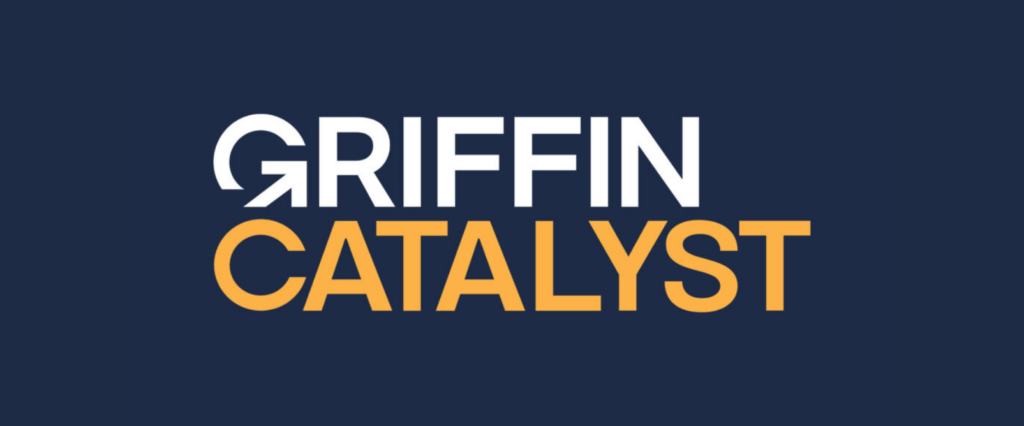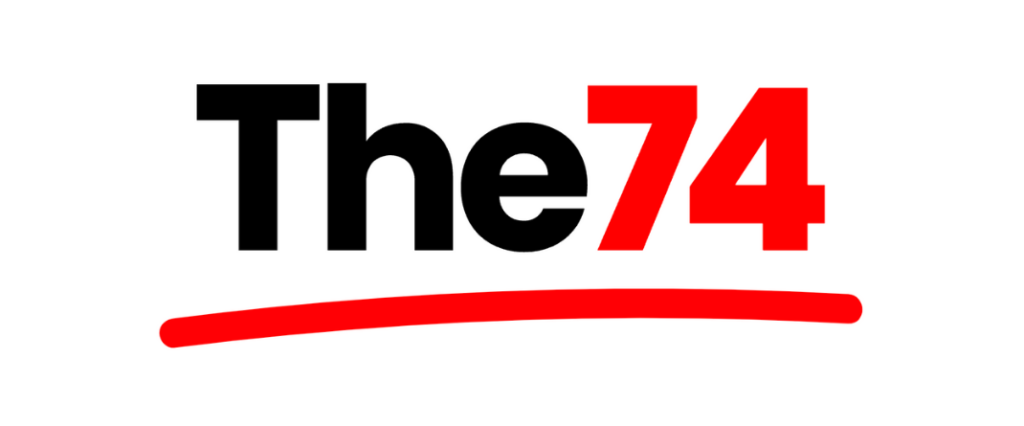Jun 2023
Randomized evaluation of a school-based, trauma-informed group intervention for young women in Chicago
Methodologies
Projects
Science Advances journal publication.
Methodologies
Projects

Scaling Promising Practices in Youth Mentoring
This case study by Results for America highlights the Crime Lab and Education Lab’s role in the City of Chicago’s bold initiative to expand the evidence-based Becoming a Man group mentoring model to serve thousands of young men.

Working on Womanhood Research Brief
Research brief for the Working on Womanhood project.

Seizing the Opportunity to Advance Education Equity
2021 Education Lab report on barriers to education faced by CPS students.

The Effect of Mentoring on School Attendance and Academic Outcomes: A Randomized Evaluation of the Check & Connect Program
This National Bureau of Economic Research paper investigates the impact of a structured student monitoring and mentoring program called Check & Connect (C&C), aimed at mitigating the effects of reduced resources for school attendance enforcement in urban school systems.
Latest Updates
A Promising Start for Personalized Learning in Miami-Dade
Griffin Catalyst highlights its three-year gift to the Education Lab to bring an innovative, high-dosage, math tutoring initiative to middle schools in Miami-Dade County to support and accelerate student learning in the wake of the COVID-19 pandemic. Initial results from the program are promising, suggesting that this approach can help tackle learning loss and enable students to catch up to grade level.

Why tutoring is a logistics problem worth solving
The National Student Support Accelerator’s (NSSA) Susanna Loeb and the Education Lab’s Monica Bhatt highlight the ways districts can stay the course on using high-dosage tutoring as a research-backed lever for strengthening teaching and learning.

Months After Deep Cuts, Education Researchers See Reason for Cautious Optimism
In a recent piece from The 74 Media’s Greg Toppo, Education Lab Senior Research Director Monica Bhatt discusses why continued investment in education R&D matters: To drive better outcomes for students and to strengthen America’s global competitiveness.

